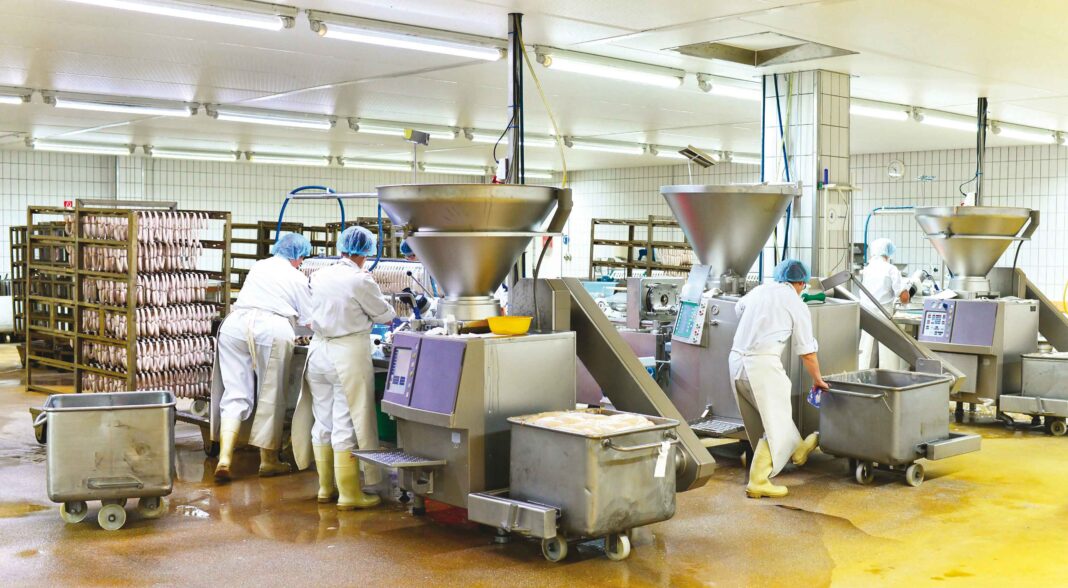Explosion of production costs, renegotiations with distributors still pending, climatic hazards, water restrictions, energy crisis, conflict in Ukraine… There is no shortage of sources of concern in the agri-food SME and ETI sector, as revealed by a survey by the Association of Processed Food Products Companies (ADEPALE) to its members.
“The situation of SMEs and ETIs in the food industry is as unprecedented as it is worrying. : memory of a leader in the food industry, we have never experienced such a difficult return to business for businesses ! » This statement from Jérôme Foucault, president of ADEPALE, summarizes the state of mind and the very strong concerns expressed as part of a survey carried out at the end of August among member companies. In this regard, ADEPALE welcomes the comments of the Ministry of Agriculture and Food Sovereignty which emphasized in recent days to the press that “entire sections of agriculture and the agri-food industry are threatened with disappearance”. Faced with this unprecedented crisis situation, SMEs and mid-sized processors in France call on all players in the food chain to work in a spirit of responsibility and solidarity, in order to avoid failures of agricultural and food businesses. However, the survey carried out among ADEPALE members reveals that around a third of the requests for essential price increases made by companies are still not completely signed by the distributors.. “This refusal of distribution to take into account the reality of the current crisis puts in great danger French food SMEs and ETIs who have been facing a continuous and unprecedented increase in their production costs for several months (energy, agricultural materials, packaging, transports…), » declares ADEPALE. otherwise, the collective and commercial catering market is experiencing the same tensions, and food companies must also be able to pass on their prices there. Aggravating fact : the practice of logistical penalties continues despite tensions over supplies !
Responsibility, solidarity and anticipation in negotiations
“As energy prices reach historic highs, it is necessary for manufacturers to be able to pass them on automatically, otherwise SMEs will not be able to survive. » ADEPALE's internal survey reveals that a third of member companies will see their energy coverage end in December 2022 and will have to undergo increases of “up to 700%”. ! » A catastrophic situation which risks leading to shutdowns of production lines and recourse to partial activity. The peak of energy inflation, expected for 2023, raises fears of the worst for the progress of future trade negotiations. “The investment capacity of companies in favor of the modernization of their production tools and the ecological transition is at stake and must be maintained. ADEPALE member SMEs and ETIs have already been very committed to reducing their energy and water consumption for many years”, underlines the association. “Wishing to take part in the sobriety effort, they continue and strengthen these commitments wherever it is possible to do so, without affecting food safety. In return, companies need visibility and anticipation to deal with possible rationing and load shedding. »
Requests and proposals from ADEPALE

L’ADEPALE, SPOKESPERSON FOR 1,570 ESTABLISHMENTS
The main professional federation of the national food industry aims to be the voice of 1,570 establishments, mainly small businesses, SMEs and ETIs through six member unions : fresh catering businesses (ETF), the Federation of Preserved Food Industries (FIAC), Ice cream and frozen food companies (les EGS), the National Federation of Dried Vegetables (FNLS), the Union of manufacturers of fresh ready-to-use vegetables (SVFPE) and the French Rice Mill Union (SRF). These companies represent a turnover of nearly 16 billion euros and employ 120,000 employees..












